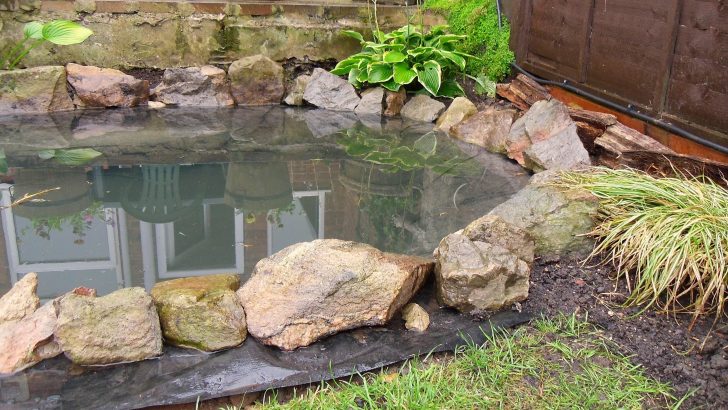There is always a snake in the grass. A primitive, but crucial, part of the human mind is always alert for dangers. parents immediately discover a heightened sense of awareness of all the dangers that their new baby faces in the world.
When we were expecting our first baby, I had a man over with a massive 20 tonne digger doing some work in our garden. He finished early, and I had a flash of inspiration: what we really needed was a trout pond, six foot deep and twenty feet wide, fed by the stream. The digger driver, somewhat older and wiser, and with a brood of his own, looked at me askew. In his West Cork drawl he said, “Isn’t your wife due any week now? Will she not be worried about the baby at all, falling into the pond?” My wife was away, and I assured him there was nothing to worry about – it would be grand altogether. I couldn’t see an issue. “You’ll regret it!” he said with a knowing smile as he went about his work.
At the end of that day, the new pond seemed a thing of unutterable beauty. It was brimful of crystal clear stream water, deep enough to swim in, so I in I dived. What a stroke of genius it was to have created a natural swimming pool in a single afternoon! It was a picture of paradise under the shade of sycamore trees, as ferns graced its banks.
Three weeks later, when I brought my son home, it had transmogrified into a pit of death. An evil swamp purpose built to devour children, just outside our own home. I had no idea how my perceptions of danger would alter the moment I first held my son. I remember, the day he was born, in the hospital, my mother smiling at me and saying, “You’ll love him for ever, but you’ll worry about him for ever too.” The thing was, these brand new parental danger sensors were not wrong: they were right. A deep body of water is lethal to a small child. Everytime someone left the front door ajar and my boy could not be seen I would have almost a heart attack and would run to the pond fearing the worst, with the words of the digger man ringing in my ears: “you’ll regret it.” It was drained before the second arrived.
Parents can seem over-protective. Some can be of course. Yet the dangers children face are real. People sometimes scoff at the new and elaborate safeguarding procedures that surround all activities with children these days. Yet look what happened in the days before anyone considered the possibilities of child abuse, or before society stopped teachers beating children. Many adults today still bear the emotional and psychological scars of that negligence.
Instincts
The instincts parents have for their own children are generally very good. Good paediatric doctors and nurses will listed carefully to parents, and take account of their instincts, as they know that they can be a sound guide. With that protective parental instinct comes a kind of ferocity when children are threatened. There is the phenomenon of hysterical strength, where a mother lifts a two tonne car off her child. We see the same protectiveness in animals, be it a herd of cattle with calves, or a ewe with lambs. A strange new certainty arises in parents upon the birth of their first child: the most placid person suddenly knows, deep in their heart, that they would without hesitation die for or – if necessary, kill – to protect their child.


 Rory Fitzgerald
Rory Fitzgerald
